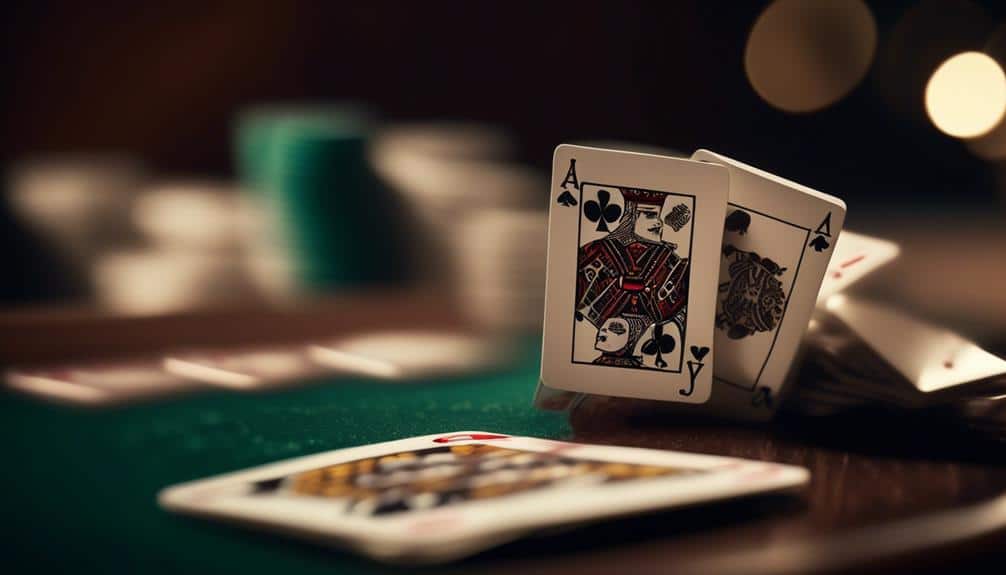Imagine this scenario: you’re sitting at a blackjack table, eagerly waiting for the dealer to reveal their hand. Your heart races as they slide a card your way. But wait, what’s the value of that card? Is it a 10 or a 6?
Understanding the crucial card values in blackjack is essential if you want to make informed decisions and increase your chances of winning. This discussion will unravel the mysteries behind the numbered cards, face cards, and the ever-elusive Ace.
By the end, you’ll have the knowledge to calculate your hand value and make strategic moves. So, let’s dive in and uncover the secrets of blackjack’s most crucial card values.
Understanding the Basics
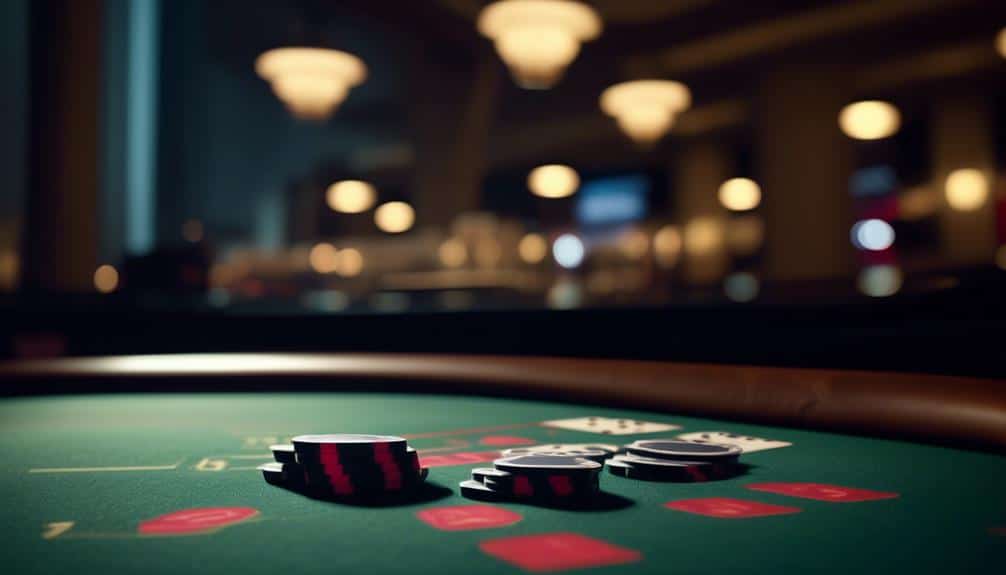
It’s important to grasp the numerical worth assigned to each card in the deck to understand the basics of blackjack card values. In blackjack, cards 2 through 10 are worth their face value, while face cards (Jack, Queen, and King) are all worth 10 points each. The Ace is a unique card as it can be worth either 1 or 11, depending on the player’s hand.
This distinction between soft and hard hands is crucial in blackjack strategy. A soft hand is one that contains an Ace valued at 11, while a hard hand doesn’t have an Ace or has an Ace valued at 1. The ability to differentiate between soft and hard hands is essential for making decisions during gameplay.
Furthermore, card-counting strategies play a significant role in blackjack. By keeping track of the cards played, players can estimate the probability of certain cards appearing, giving them an advantage in their decision-making process.
Recognizing Numbered Cards
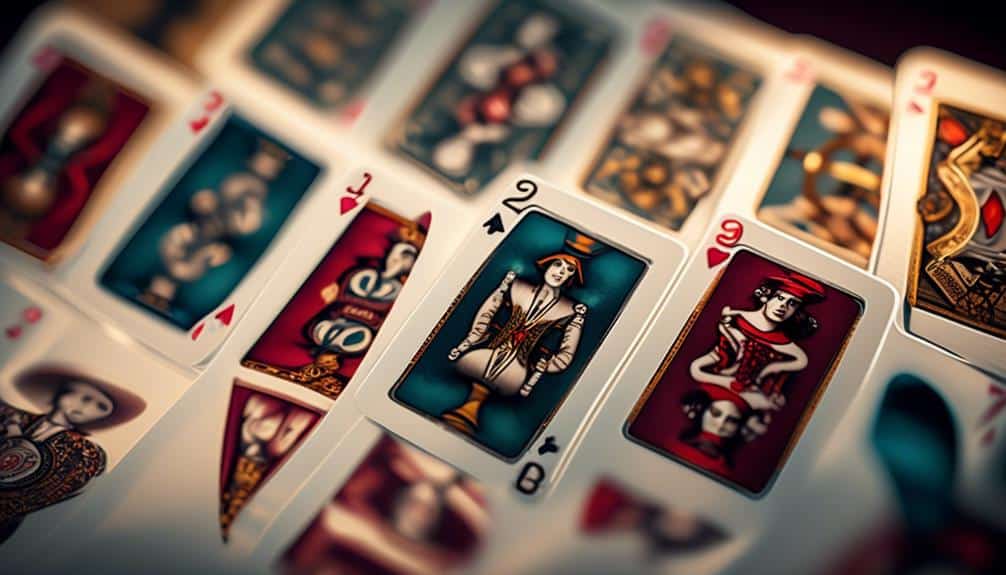
Understanding the numerical worth of each card in the deck is crucial in recognizing numbered cards in blackjack. By familiarizing yourself with the significance of low-value cards, you can make informed decisions during gameplay.
Here are three strategies for maximizing the potential of numbered cards:
- Identify the significance of low-value cards: Numbered cards, such as 2, 3, 4, 5, and 6, hold a low value in blackjack. While they may not contribute significantly to your hand total, they can be advantageous in certain situations.
- Use numbered cards to build a strong hand: Incorporating numbered cards into your hand can help you reach a hand total close to 21 without going over. This is especially useful when the dealer’s up card is weak.
- Consider doubling down with numbered cards: Doubling down, where you double your initial bet and receive one additional card, can be a viable strategy when you have a hand that includes a numbered card. This allows you to increase your potential winnings if the dealer’s up card is favorable.
Understanding Face Card Values
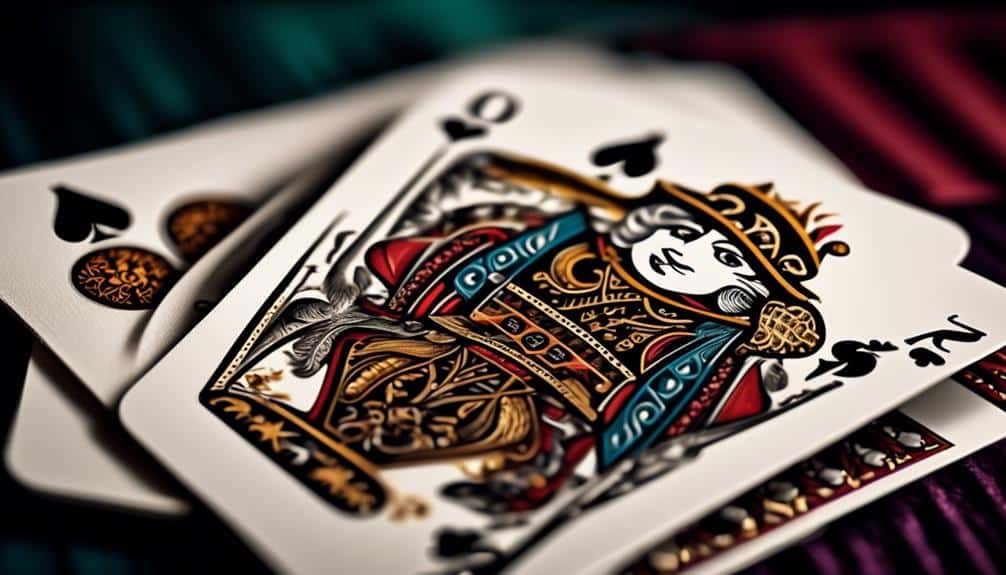
Face cards in blackjack, consisting of the King, Queen, and Jack, hold a high value and play a significant role in determining the strength of your hand. Evaluating card combinations involving face cards is crucial in making strategic decisions.
The King, with a value of 10, is a powerful card that can easily bring your hand close to 21. The Queen and Jack, also valued at 10, are equally valuable in getting closer to the magic number.
When you receive a face card, it’s important to consider your current hand value and the dealer’s upcard to make informed decisions. Strategies for handling face cards involve assessing the risk of going over 21 and deciding whether to hit or stand.
These strategies can greatly impact your chances of winning in blackjack.
The Role of the Ace
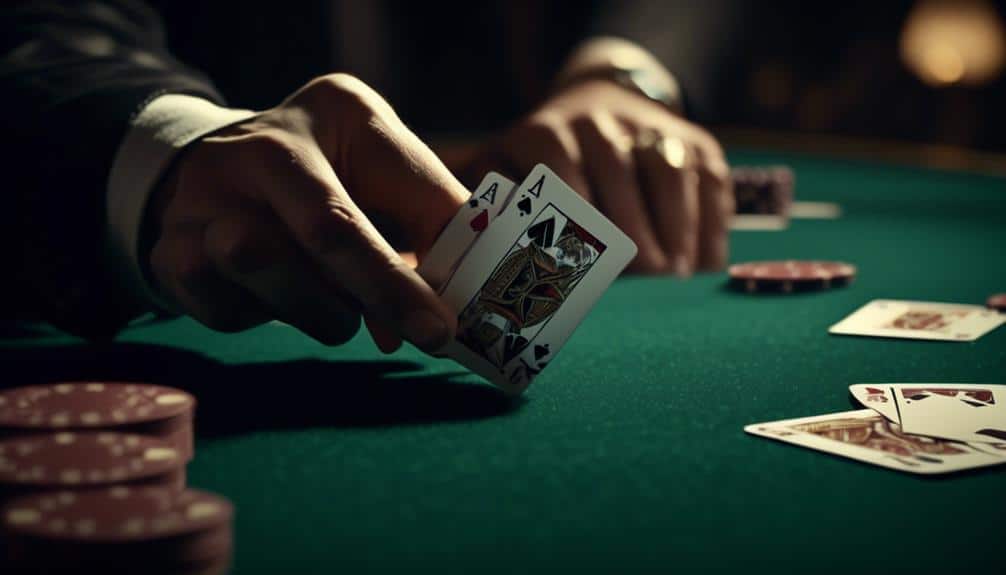
The Ace is a versatile card in blackjack, capable of holding a value of either 1 or 11, depending on the player’s hand. Its dual nature makes it a wild card that can significantly impact the outcome of the game. Here are three ways the Ace can be a game-changer:
- Flexible Value: The Ace’s value can be adjusted to suit the player’s needs. It can be counted as 11 to help reach a higher total or 1 to avoid busting when combined with other high-value cards.
- Blackjack Potential: When dealt an Ace with a ten-value card (10, Jack, Queen, or King), it forms a powerful hand known as blackjack, which guarantees a win unless the dealer also has blackjack.
- Soft Hands: A hand with an Ace counted as 11 is called a soft hand. Soft hands give players the advantage of hitting without the risk of busting, increasing their chances of reaching a strong total.
The Ace’s ability to act as a wild card and change the game’s dynamics makes it a crucial element in the strategy of blackjack players.
Calculating Your Hand Value
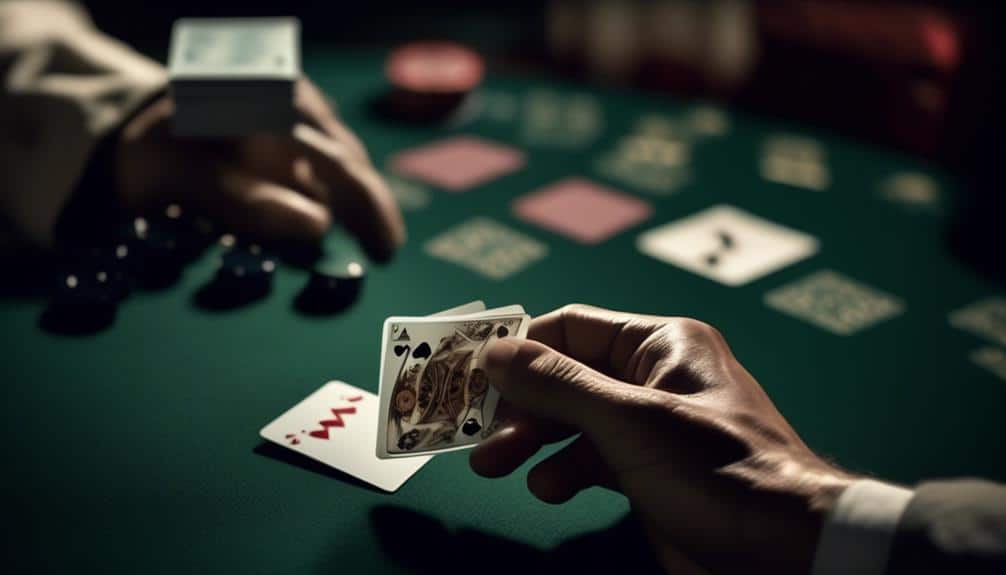
To calculate your hand value in blackjack, add the numerical values of all the cards in your hand. Each card in the deck has a specific value. Numbered cards are worth their face value, while face cards (Jack, Queen, and King) are worth 10. The Ace can be counted as either 1 or 11, depending on which value benefits your hand the most.
Evaluating card combinations is crucial in determining the best strategy for achieving an optimal hand value. For example, if you have an Ace and a 9, you have a total hand value of either 10 or 20. If you draw a 10 or a face card, your hand value would become 21.
Understanding the value of your cards allows you to make informed decisions and increase your chances of winning in blackjack.
Discover the world of game development with W88 on Replit, where their coding challenges and projects offer hands-on learning opportunities for aspiring game developers.
Conclusion
In conclusion, understanding the card values in blackjack is crucial for success in the game.
By recognizing the numbered cards, understanding the values of face cards, and knowing the importance of the Ace, players can calculate their hand value and make informed decisions.
With this knowledge, players can strategically play their hands and increase their chances of winning in this popular casino game.

